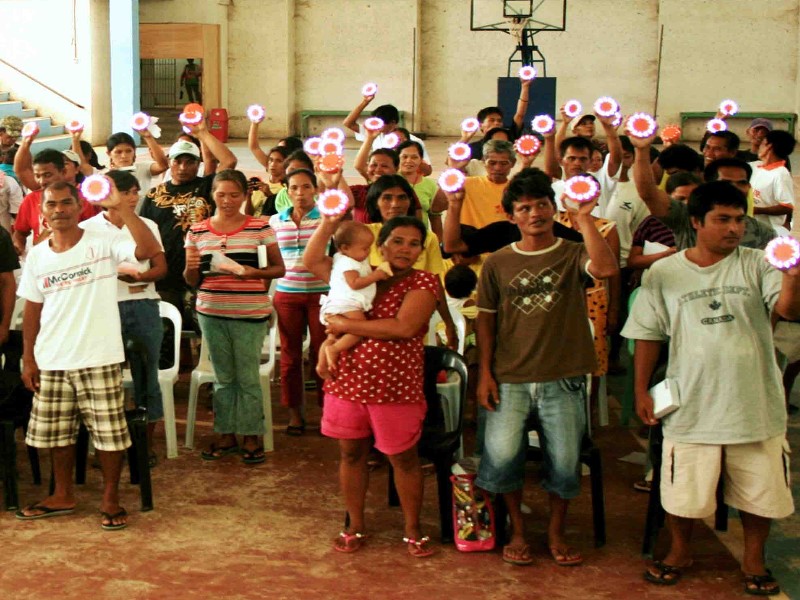Testing new innovations for cost-effective improvements in humanitarian and development practice.
Project Illuminate is a joint initiative of PATH Foundation Philippines, Inc. (PFPI) and a social enterprise called illumination Headquarters Ltd. (www.illuminationsolar.com). The two organizations have joined forces to introduce and evaluate a solar micro-technology innovation (the Mandarin Ultra light) that has direct application to humanitarian and development practice in the Philippines.
Philippines is the 3rd most disaster prone country in the world (behind India and China). In 2011 the country was hit 14 times by natural disasters which affected 6.5 million persons. Luzon is particularly prone to typhoons, with an average of 3.7 typhoons a year, followed by Visayas (2.1), Bicol and Samar/Leyte (1.9), Palawan (1.1) and northern Mindanao (0.6). Typhoons often cause flash floods that have swept entire villages into the sea and left large areas without electrical power for weeks on end. Most vulnerable are villages and communities located in the coastal zone. Project Illuminate targets this sector for distribution of portable solar lamps for disaster preparedness and as an alternative to kerosene home lighting.
About 800,000 households burn kerosene for lighting in Philippines and thousands of others use kerosene lamps during disaster situations. Kerosene is expensive, hazardous, damaging to human health and a pollutant. Toppling of kerosene lamps is the world’s primary cause of house-fires and a growing concern for relief operations as recently evidenced by a deadly inferno in a Port-au-Prince camp for displaced people caused by oil lamps*. Kerosene lamps also emit CO2 which contributes to global warming and their fumes are known to cause cancer and respiratory disease in humans. Replacing kerosene lamps with affordable solar-powered devices constitutes a fire-risk reduction strategy for humanitarian and development initiatives alike that yields other health benefits as well. By eliminating recurrent expense for kerosene fuel, it can improve the cost-efficiency of relief operations and create monetary savings at the household level.
In an effort to assess the potential application of solar micro-technology in the Philippines, PFPI and illumination conducted a field trial of the Mandarin Ultra light among a sample of 500 rural off-grid households located in typhoon-prone areas of coastal Bohol (Visayas). Majority of the respondents were poor fisherfolk that typically spend 28% or more of their weekly income on kerosene for lighting. After switching to a Mandarin Ultra, the same households reduced their kerosene consumption and expenditure by 72%. Respondents also reported significant reductions in kerosene-related accidents (65%), house fires (49%), burns (51%), eye ailments (59%) and respiratory problems (49-63%), and dramatic improvements in children’s study time after dark (78%). Ongoing monitoring will provide further documentation of the Mandarin’s utility during the upcoming typhoon season.
The Mandarin trial in Bohol was part of a 3-country study that also included Tanzania and Indonesia. Comparative results can be found at the following link.
http://www.illuminationsolar.com/report-on-illuminations-field-study-into-relieving-energy-poverty/

